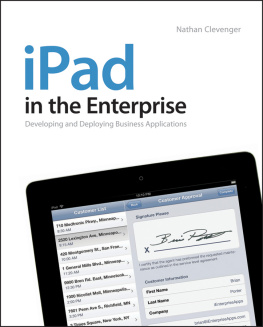J.-C. Spender - Business Strategy: Managing Uncertainty, Opportunity, and Enterprise
Here you can read online J.-C. Spender - Business Strategy: Managing Uncertainty, Opportunity, and Enterprise full text of the book (entire story) in english for free. Download pdf and epub, get meaning, cover and reviews about this ebook. year: 2014, publisher: Oxford University Press, genre: Business. Description of the work, (preface) as well as reviews are available. Best literature library LitArk.com created for fans of good reading and offers a wide selection of genres:
Romance novel
Science fiction
Adventure
Detective
Science
History
Home and family
Prose
Art
Politics
Computer
Non-fiction
Religion
Business
Children
Humor
Choose a favorite category and find really read worthwhile books. Enjoy immersion in the world of imagination, feel the emotions of the characters or learn something new for yourself, make an fascinating discovery.

- Book:Business Strategy: Managing Uncertainty, Opportunity, and Enterprise
- Author:
- Publisher:Oxford University Press
- Genre:
- Year:2014
- Rating:4 / 5
- Favourites:Add to favourites
- Your mark:
- 80
- 1
- 2
- 3
- 4
- 5
Business Strategy: Managing Uncertainty, Opportunity, and Enterprise: summary, description and annotation
We offer to read an annotation, description, summary or preface (depends on what the author of the book "Business Strategy: Managing Uncertainty, Opportunity, and Enterprise" wrote himself). If you haven't found the necessary information about the book — write in the comments, we will try to find it.
J.-C. Spender: author's other books
Who wrote Business Strategy: Managing Uncertainty, Opportunity, and Enterprise? Find out the surname, the name of the author of the book and a list of all author's works by series.
Business Strategy: Managing Uncertainty, Opportunity, and Enterprise — read online for free the complete book (whole text) full work
Below is the text of the book, divided by pages. System saving the place of the last page read, allows you to conveniently read the book "Business Strategy: Managing Uncertainty, Opportunity, and Enterprise" online for free, without having to search again every time where you left off. Put a bookmark, and you can go to the page where you finished reading at any time.
Font size:
Interval:
Bookmark:
Business Strategy
Managing Uncertainty, Opportunity, and Enterprise
J.-C. Spender


Great Clarendon Street, Oxford, OX2 6DP,
United Kingdom
Oxford University Press is a department of the University of Oxford.
It furthers the Universitys objective of excellence in research, scholarship,
and education by publishing worldwide. Oxford is a registered trade mark of
Oxford University Press in the UK and in certain other countries
J.-C. Spender 2014
The moral rights of the author have been asserted
First Edition published in 2014
Impression: 1
All rights reserved. No part of this publication may be reproduced, stored in a retrieval system, or transmitted, in any form or by any means, without the prior permission in writing of Oxford University Press, or as expressly permitted by law, by licence or under terms agreed with the appropriate reprographics rights organization. Enquiries concerning reproduction outside the scope of the above should be sent to the Rights Department, Oxford University Press, at the address above
You must not circulate this work in any other form and you must impose this same condition on any acquirer
Published in the United States of America by Oxford University Press
198 Madison Avenue, New York, NY 10016, United States of America
British Library Cataloguing in Publication Data
Data available
Library of Congress Control Number: 2013943044
ISBN 9780199686544
Printed in Great Britain by
CPI Group (UK) Ltd, Croydon, CR0 4YY
Since economics offers little in the way of practical insight, managers and entrepreneurs depend on their own business acumen, personal judgment, and rules of thumb in making decisions.
Coase and Wang, Saving Economics from the Economists, 2012.
A preface helps position a book with comments that do not really belong in the text yet help the reader get a sense where the author is coming from. For instance: how the book came to be writtenfrom disappointment with the current literature, to fulfill a grant, for income, or as part of a larger project involving several volumes. It can indicate where key ideas came from. Plus it is personal and can name those who helped support the writer during the books creation in whatever ways mattered. It is also an opportunity for the author to thank people who are not, of course, held responsible for the outcome. But as Jonathan Swiftof Gullivers Travelswarned, if the preface is too good it lessens the incentive to read furthersomething to bear in mind.
My books origins lie in my shortcomings as a manager and as a teacher. As one of my students chided me, academics sometimes try to do with their heads what they cannot do with their hearts (or guts). Right, Maggie, you nailed us. I became interested in management when I joined Rolls-Royce & Associates after time in Royal Navy submarines and at Oxford University. I quickly realized that, while I could survive, I was never going to be a great manager. Managing was not a natural medium for meamply confirmed when I worked for one of those rare people born to manage. I would be a journeyman manager, like most. I also began to teach apprentices in the evenings at the Derby Technical College (now the University of Derby). I learned little about management in my engineering courses at Oxford, but soon discovered good things to read about being a manager. Urwicks Elements of Administration was the first book into my management libraryvery British and military. At the same time I realized that teaching was not all that natural for me either. My strategy was more preparation. But the deeper I got into the material, the more puzzling it became; questions went unanswered, displaced by even deeper ones.
In 1971, after several business adventures, I entered the Ph.D. program at the Manchester Business School. There I had the good fortune to be taught by world-class scholars such as David Weir and Richard Whitley who introduced This was OK as far as it went, but I knew I missed my mark, plus few grasped what I was about or found it interesting. The present book is a second shot at the same target. It is the generalization that brings that project to completion. At its core is a model of the individual as having powers of imagination and judgment along with powers of logic. This shift of underpinning distances my work from the huge literature that presumes every individuals principal attribute is rationality. Thus I see managing is an imaginative practice, an art form.
In the thirty years between my Ph.D. and this book I managed in several milieusas an entrepreneur, strategist, director, investor, and business school dean. I also taught and wrote about business strategy and later about knowledge management (KM), especially about the interplay of knowledge presences and absences, the practice-framed discovery that we do not know that we are incompetent. At first KM seemed a diversion from strategy but it now seems central, for strategic work can be defined as dealing with the knowledge absences that impede competent progress towards our goals. As I explored the KMstrategy relationship I realized two things. First, there is no understanding strategic work without a complementary understanding of the entity being managedthe private sector firmand the knowledge absences that characterize it. While the nature of the firm may seem blindingly obvious to managers, management theorists know we are not too sure of what firms are, or why they exist. Strategy theory reaches towards a theory of the firm, of course, and it followstake my word for itthis means it is not useful to think of management as generic, that being able to manage well in one situation implies you will be able to manage somewhere else. Managing and strategic work is highly specific and contextualized, not at all general. Nor is it useful to think of the firm as a dumb object, an inanimate entity that does not require continuous managing, constant pumping to keep it afloat. At law the firm is easily described in terms of the rights and obligations written into its charter or articles of association. In contrast, the firms managers must deal with its buzz of dynamic activities, imprecise, riven with knowledge absences, and not readily definedforever under construction, in part because of its many possible futures, and in part because of its ambiguous present and past. From managements point of view a firm is defined more by its practical capabilities and potentials than by its charter or the tangible resources shown on its balance sheet. These capabilities change all the time because people learn by doingso strategic work is continuous and dynamic, and an ongoing challenge in a changing world. The firm the managers are creating continuously is like a long-lived rosebush; managing it is husbandry. All of which calls for a dynamic theory of the managed firm (TMF) before we can analyze or evaluate managers practice.
I realized that to get into the heart of strategy and value creation it is crucial to turn the conventional analysis upside down, to probe for the knowledge absences that allow and call for the application of the entrepreneurial imaginationrather than presuppose economic value creation has external causes. Turning my back on Rational Man, I also turned away from rigorous economic theorizing. Microeconomics has yet to provide us with theories of the firm that explain strategizing or the firms capability to generate profit or growth, or even its existence. Ronald Coases questions about the nature of the firm, posed in 1937, have not yet been answered, leaving non-economists and others free to have a go.methodological point of view I turn away from the positivism that underpins our notions of natural science and follow the twentieth-century turn towards language found in the work of, for instance, Wittgenstein, Habermas, and most importantly Heidegger. My book is about the construction and deployment of the firms own language (jargon), what gives it its identity. Another way to put this as my arguments arc: that the discovery of knowledge absences in the course of purposive practice triggers the application of entrepreneurial judgment, thus
Next pageFont size:
Interval:
Bookmark:
Similar books «Business Strategy: Managing Uncertainty, Opportunity, and Enterprise»
Look at similar books to Business Strategy: Managing Uncertainty, Opportunity, and Enterprise. We have selected literature similar in name and meaning in the hope of providing readers with more options to find new, interesting, not yet read works.
Discussion, reviews of the book Business Strategy: Managing Uncertainty, Opportunity, and Enterprise and just readers' own opinions. Leave your comments, write what you think about the work, its meaning or the main characters. Specify what exactly you liked and what you didn't like, and why you think so.





